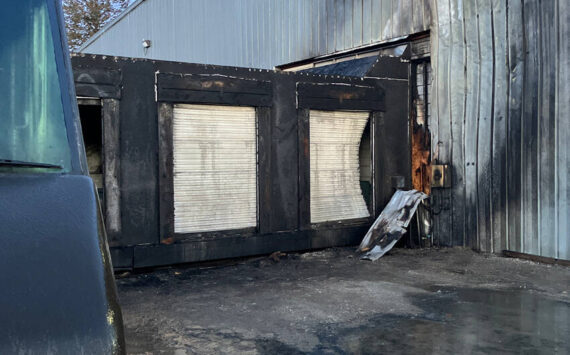School Districts take different paths because of HB 2422
NORTH COUNTY – Oroville and Tonasket School Districts are going to the voter to ask for two-year levies to help fund programs and operations that the state does not provide money for.
The two levies vary not only in the amounts they are requesting, but by name. The Oroville School District is asking for a special two-year Maintenance and Operations levy of $1,497,371 to be collected in 2019 and 2020. The Tonasket School District is asking voters to approve a Replacement Educational Programs and Operation Levy with a price tag of $830,000 in 2019 and $900,000 in 2020.
The difference in the levies is that Oroville is asking for a direct replacement of the levy that ends in 2018 and at a collected at the rate of $2.72 per $1000 of assessed property valuation. The amount to be collected will be the exact same as the expiring two-year levy, but the amount per $1000 in value has increased slightly because of district’s overall value dropped, primarily because of the Buckhorn Mountain gold mine wrapping up operations and entering the reclamation phase.
The Oroville School Board set the levy amount at $2.72/$1000, despite House Bill 2422 which caps collection at $1.50/$1000 with the understanding that if that bill stands as currently written the district will only collect the $1.50/$1000. The state has promised to make up the difference, but the board decided on the higher amount because of talk that that cap may be changed.
“The school district knows that we may only collect tax amounts allowed by law; if HB2242 is implemented fully, then the collected tax rate would be $1.50 /$1000 for local levy plus an additional tax that the state will impose (the levy swap),” reads an information sheet handed out at the meeting. “Because we do not yet know what legislative changes may occur, we have decided to set our proposed rate at $2.72/$1000 which reflects the collection amount of $1,497,371, which is the same as our current and past levies.”
Tonasket School District, however, decided to approve a levy based on the HB2422 cap and will collect the levy money, if approved, at an estimated $1.50 per $1000 in assessed property valuation to be collected in 2019 and 2020.
Oroville’s levy would pay for the technology program; maintenance of the buildings and grounds; all co-curricular activities like athletics; two classified positions; the school nurse; curriculum supplies, materials, textbooks and equipment; College in the High School; library books and supplies; substitutes; academic contests; science contests, fairs and activities; dropout prevention; music program; Criminal Justice class; vocational program supplies and more.
The district had a special informational levy meeting on Monday, Jan. 22 and Superintendent Jeff Hardesty has been meeting with various community groups around the district to explain what the levy entails. At the levy information meeting on Jan. 22, Hardesty said, “The dollars per thousand went up slightly because the assessed valuation of the district went down.”
Tonasket went the other route and their board is betting that HB2242 will be implemented fully as written.
“Some key points center around the passage of House Bill 2242, which has changed a lot when it comes to school levies, even changing the name from Maintenance and Operations (M&O) to Enrichment or Educational Programs and Operations Levy,” said Anitra Atchison with the Tonasket School District. “We are eligible for state LEA funding in the amount of $1 million per year, but this is entirely dependent on passing our local levy. If the local levy does not pass we will not receive the state LEA money.”
Tonasket Schools Replacement Educational Programs and Operation Levy will be used to maintain current programs and fund what the state does not consider “Basic Education.” these include many programs the district offers and the community expects are not technically considered “Basic Education” by the state of Washington. Among the items the Tonasket School District says the levy money supports, and will continue to support, are the following: Building and Grounds – custodial, maintenance and grounds personnel; materials and supplies; energy costs; Special Programs – field trips, paraeducators, administration, teaching staff in art, music, PE, electives and counseling; Co-Curricular and Extracurricular – drama, FFA, FBLA, knowledge bowl, robotics, athletics, cheerleading, etc. and Curriculum and Technology – curriculum materials (i.e. ELA and Math adoption), technology and devices for staff and students, technology staffing.





